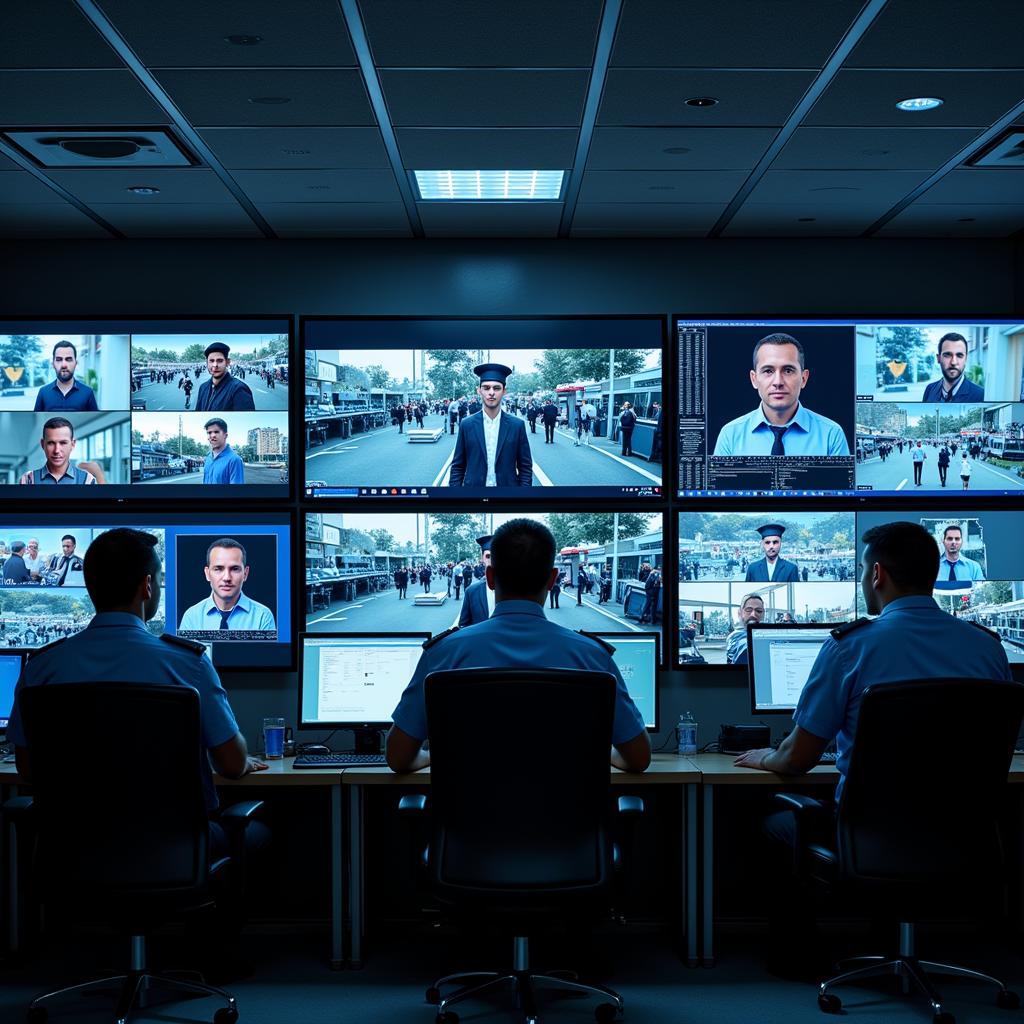The topic of artificial intelligence (AI) in law enforcement and surveillance has become increasingly prevalent in IELTS Writing Task 2 examinations. Based on analysis of past papers and current trends, this theme has appeared multiple times in various forms, particularly in 2022-2023. The most common question types involve discussing ethical implications, weighing advantages against disadvantages, or evaluating government policies regarding AI surveillance.

Task Analysis and Sample Question
Some people believe that the use of artificial intelligence (AI) in law enforcement and surveillance helps reduce crime and maintain public safety. Others argue that it violates privacy rights and can lead to discrimination. Discuss both views and give your opinion.
This question requires:
- Discussing both positive and negative aspects of AI in law enforcement
- Providing a balanced analysis
- Including personal opinion
- Supporting arguments with relevant examples
Band 8 Sample Essay
The deployment of AI technologies in law enforcement has sparked intense debate regarding its effectiveness versus ethical implications. While some advocate for its crime-prevention capabilities, others express serious concerns about privacy infringement and potential bias. I believe that while AI can be beneficial for law enforcement, strict regulations must be implemented to protect civil liberties.
The integration of AI in policing offers several compelling advantages. Firstly, advanced surveillance systems equipped with facial recognition can significantly enhance public safety by identifying criminals in real-time and preventing potential threats. For example, in major cities like Singapore, AI-powered cameras have successfully helped authorities apprehend suspects and reduce crime rates. Additionally, predictive policing algorithms can analyze historical data to optimize resource allocation and proactively prevent criminal activities in high-risk areas.
However, the implementation of AI surveillance raises legitimate privacy concerns. Critics argue that constant monitoring creates a surveillance state where citizens feel their every move is being watched, fundamentally altering public behavior and restricting personal freedom. Moreover, there are valid concerns about algorithmic bias, as AI systems may perpetuate existing prejudices against certain ethnic or socioeconomic groups. For instance, studies have shown that facial recognition technology can be less accurate when identifying individuals from minority backgrounds, potentially leading to wrongful arrests.
In my opinion, the benefits of AI in law enforcement can outweigh the drawbacks if proper safeguards are established. Governments should implement transparent policies regarding data collection and usage, ensuring that AI systems are regularly audited for bias and accuracy. Furthermore, public oversight committees should be established to monitor the deployment of these technologies and protect citizens’ rights. This balanced approach would allow law enforcement to leverage AI’s capabilities while maintaining ethical standards and public trust.
Band 6.5 Sample Essay
AI technology in law enforcement is becoming more common nowadays. Some people think it is good for fighting crime, but others worry about privacy problems. This essay will discuss both sides of this issue.
On the positive side, AI helps police catch criminals more easily. Cameras with AI can recognize faces of wanted people in crowds, which makes cities safer. Also, computers can process lots of information quickly to find patterns in crime, helping police work better. In my country, police use AI cameras in busy areas and this has helped reduce street crime.
However, there are problems with using AI for surveillance. Many people feel uncomfortable being watched all the time by cameras. They think it’s not fair to record everything they do. Another problem is that AI might make mistakes and treat some groups of people unfairly. Sometimes the computer systems don’t work well with different faces.
I think AI in police work can be good if used carefully. The government should make clear rules about how to use AI and protect people’s privacy. Police should only use AI when necessary and make sure it doesn’t discriminate against anyone. This way, we can get the benefits of AI while respecting people’s rights.
Analysis of Band Scores
Band 8 Essay Analysis:
- Sophisticated vocabulary and complex structures
- Clear organization with cohesive devices
- Well-developed arguments with specific examples
- Balanced discussion with clear personal stance
- Academic tone throughout
Band 6.5 Essay Analysis:
- Simple but clear vocabulary
- Basic essay structure
- Limited use of complex sentences
- Some development of ideas but less sophisticated
- Occasional informal expressions
Key Vocabulary to Remember
- surveillance (n) /səˈveɪləns/ – the careful watching of a person or place
- algorithmic bias (n) /ˌælɡəˈrɪðmɪk baɪəs/ – unfair preferences in computer systems
- perpetuate (v) /pərˈpetʃueɪt/ – to make something continue indefinitely
- safeguards (n) /ˈseɪfɡɑːdz/ – protective measures
- oversight (n) /ˈəʊvəsaɪt/ – supervision and monitoring
- infringement (n) /ɪnˈfrɪndʒmənt/ – the action of breaking rules or laws
- proactively (adv) /prəʊˈæktɪvli/ – taking action before problems occur
- deployment (n) /dɪˈplɔɪmənt/ – the action of bringing resources into effective action
Consider practicing with these similar topics:
- AI in healthcare decision-making
- Facial recognition technology in public spaces
- Digital privacy in the modern age
- Government monitoring of social media
Share your practice essays in the comments section for feedback and improvement suggestions.